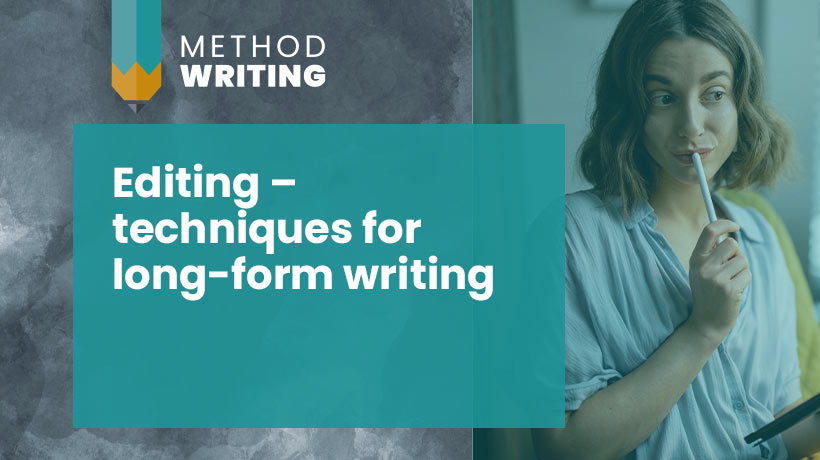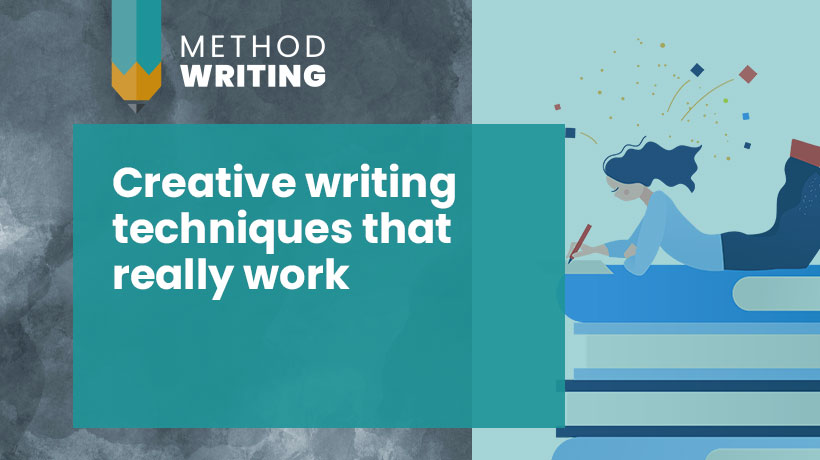How to write a nanonovel with random writing prompts
Nanonovels are an experiment with microfiction or flash fiction using random writing prompts. You might find the process helpful if you only have tiny pockets of time to write in, or want a new writing challenge to take you outside your comfort zone!
I invented the nanonovel process many years ago, during a time of illness when I’d stopped writing, and needed to get back on track. Each story took five minutes to write, and although they weren’t intended for publication, they turned out fun, and I published them later as a book.
Each nanonovel is a tiny, complete story shape. I was interested in the experiment because of what I might learn about form and resistance. It was a kind of scientific process where I had to follow certain rules, dive in, and respond quickly to a stimulus.
If you’d like to try writing a nanonovel, here’s what to do:
- Take a random book from your bookshelf.
- Open it randomly, insert your finger and pick the word or phrase you find.
- That’s the title of your story.
- Put this title into your search engine.
- Go to the first page you find that isn’t an advert. This is your writing prompt.
- Set a timer for 5 minutes, and write your story.
- Stop.
- You can finish the sentence you’re on, but no further changes.
I wrote a nanonovel every day for 150 days, until I was defeated by staying in a hotel room that didn’t have a bookshelf. I took screengrabs of each web page, and noted the book title and page. Reading them now takes me right back into the memory of writing, and of the books they came from.
What can you learn from writing nanonovels?
The power of diving in. Resistance is real, and the only way to overcome it is to jump straight in and write something, bypassing rumination and excuses.
How to build a parachute on the way down. You’ve started, and you’ve got to simply build, without questioning how. The only visibility is a couple of steps ahead of where you are. You feel your way in words. You gain some momentum. And at about four minutes in, you get a sense of the ground looming up – the destination. You build as fast as you can.
Imagination is found by letting go of perfection. The subconscious has far more interesting things to bring up than any amount of plot wrangling. The fragments are playful and surprising. You didn’t know you had those reactions inside you.
Your subconscious is another country. When you look back, you wonder how on earth you got to that place.
External rules can provide freedom. Your brain is full of familiar pathways, including language grooves. Starting with a random stimulus can jolt you out of those grooves, and force you to make incompatible elements fit together. It’s not unlike the theatre art of improv, “where fear meets joy”.
Short can out-manoeuvre excuses. There’s a fitness trick called something like “Just One Push-Up”. The idea is to choose a goal so small as to be ridiculous – one you can’t possibly wimp out on. This helps you to trick your brain into overcoming “threshold fear” (German are so familiar with this, they have a single word for this: Schwellenangst). Using the trick, you end up doing more than one push-up. Nanonovels are the writing equivalent of the single push-up – anyone can write for just five minutes, right? Except in practice, my brain came up will all sorts of reasons to avoid it. It was actually spectacular, how many pathetic excuses it found to stop me from writing. Over 150 days, this was a chance to directly experience the mechanism of resistance, day after day, and get to know it, face it down. Or more accurately, ignore its annoying pleading and get on with it. I learned that the whole experience has something to do with focus, with attention, with adrenaline, with fear. Recently, reading The Stress Test by Ian Robertson, I learned more about the psychological basis.
Perfectionism is just fear. You might want to work out what the fear is, and where it comes from. I discovered that my writing had lost a sense of play. Nanonovels helped to bring it back.
Interested in nanonovel writing? See the Nanonovel Challenge Workbook.


